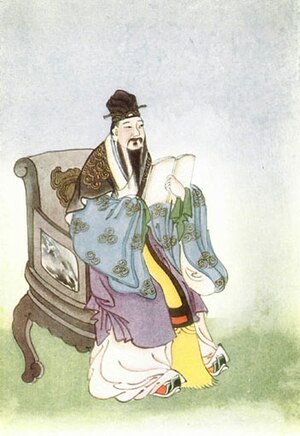Mencius a fourth-century BCE Chinese thinker and disciple of Confucius, taught that human beings have within them everything they need to live together in harmony – it’s just a question of developing these capacities in the correct way.
All men have a mind which cannot bear to see the sufferings of others. My meaning may be illustrated this way: if men suddenly see a child about to fall into a well, they will without exception experience a feeling of alarm and distress—not so they may gain the favor of the child’s parents, nor to seek the praise of their neighbors and friends, nor from fear of a reputation of having been unmoved by such a thing.
From this case, we may perceive that the feeling of commiseration is essential to man…The feeling of commiseration is the principle of benevolence. The feeling of shame and dislike is the principle of righteousness. The feeling of modesty and complaisance is the principle of propriety. The feeling of approving and disapproving is the principle of knowledge…
Since all men had these four principles in themselves, let them know to give them their full development and completion, and the result will be like a fire which has begun to burn, or a spring which has begun flow. Let them have their complete development, and they will suffice to love and protect all.
Modern science is tending to support Mencius’ two and a half thousand year old view – mirror neurons, oxytocin, automatic empathy – so, what are the steps we need to take in order to translate our innate capacities for peace, love and understanding into reality?_______________________________________________
Related articles
- Philosophy East and West, vol. 61, no. 4 (2011) (uhpjournals.wordpress.com)
- How Heartless Are The Chinese? Ctd (andrewsullivan.thedailybeast.com)

He says: “If men suddenly see a child about to fall into a well, they will without exception experience a feeling of alarm and distress . . .”
I’m not persuaded by his statement.
Some men would experience alarm and distress.
Others might push the child into the world to hear the size of the splash.
Nothing in this world is “without exception.”
Agreed, Nancy but as always the exception proves the rule, I guess.
Like everything else, the philosophy is a reflection of a way of life of a people, and and a short documentary. It makes all the sence to the individuals belonging to a society, some of them, but out of context, it can develop more inwardly, in the individual or small group. The closer the philosophy becomes a detailed rule of life, the more loses generalization, the more it contains and describes time and place, tradition, that will eventually change, as an addendum, but it may become obsolite a a way of life. In the end only chess survives, with its merits, and the beautiful lines and verbs and proverbs, and morals. Nothing will change the duality of the human being, the reflection of the period and place they live in, even if one becomes one with the desert and a hermit. But I like Tai chi.
Duality is good. Dichotomy is another day of the week…
About the child: WE lived thru a large scale earthquake, and were on the third floor. O the fourth lived a family, very loving father playing with the toddler son. When the earthstarted to shake, and everyone left the building, we found him standin in front of the building, alone, only the notice his wife, carrying their son, tired, coming out of the building. By her reaction we knew that things were not planned that way, that his instict was way much more protective of self, than a mother’s instinct of protecting her son first. Not to generalise, but nature did take care of things before we became human!
I enjoy your posts, thank you!
I’d say he was ashamed (and possibly divorced!). Thanks for the comments.
hey did not divorce: he was just scared out of his witts. So his brain turned into survival mode. Thianks!